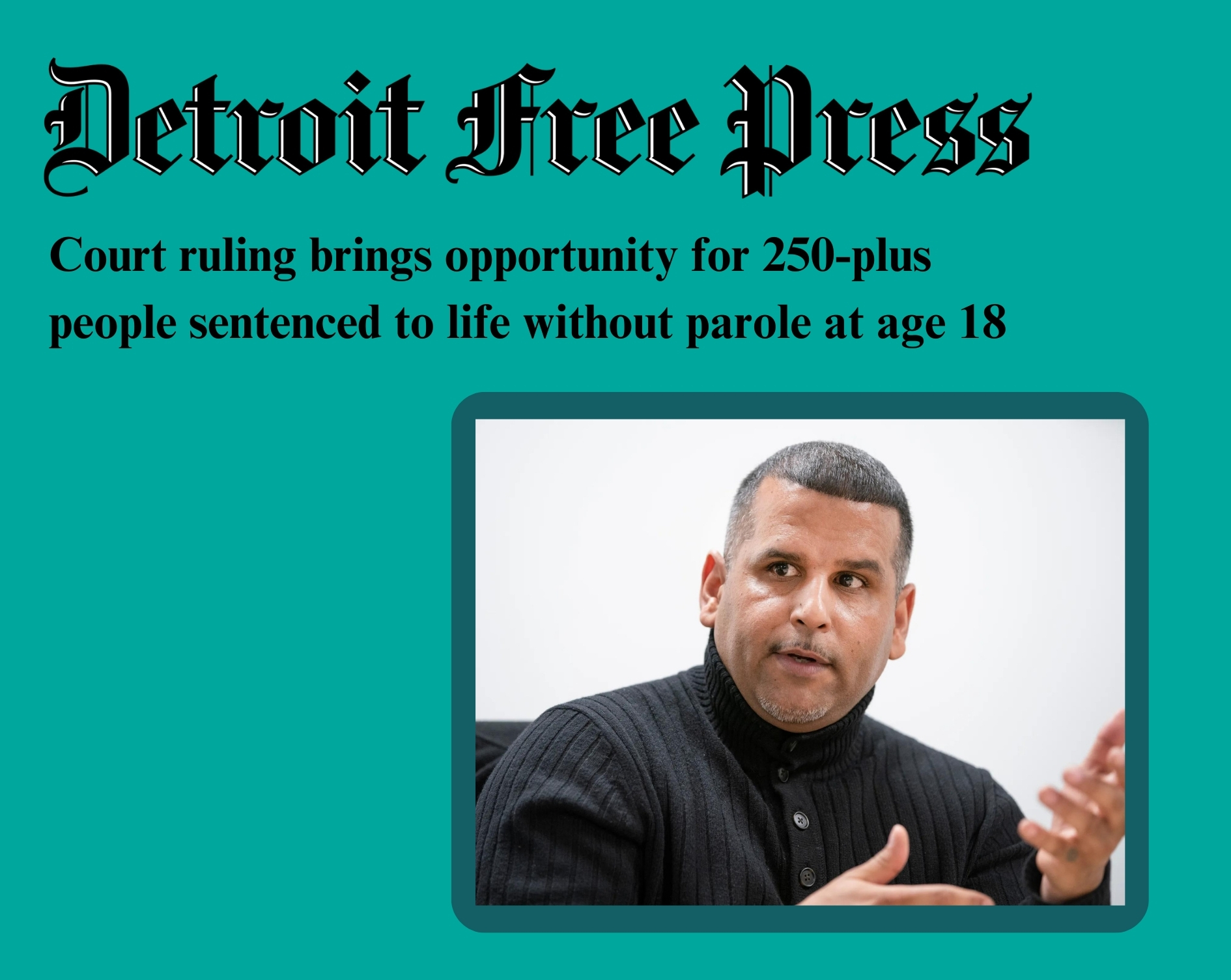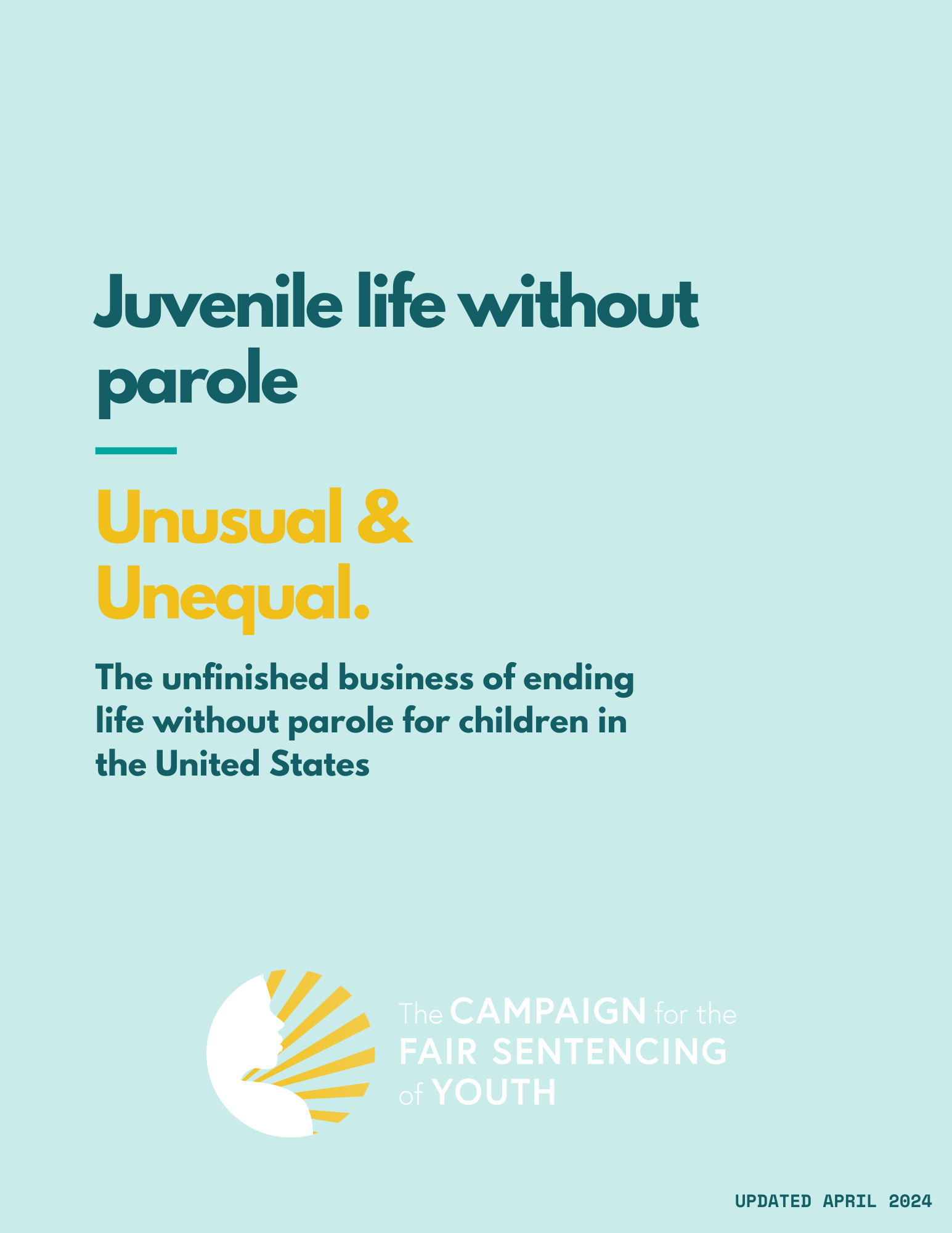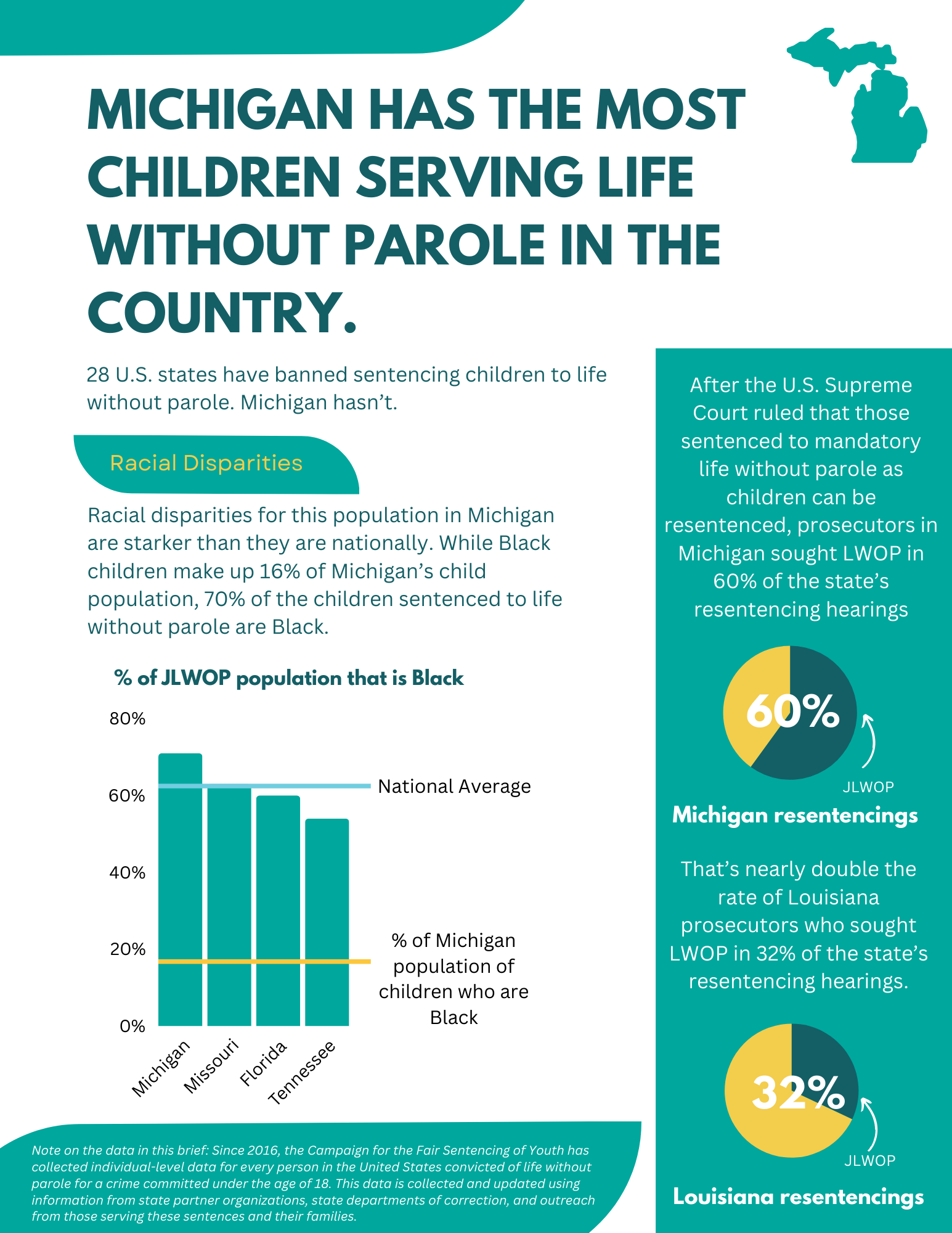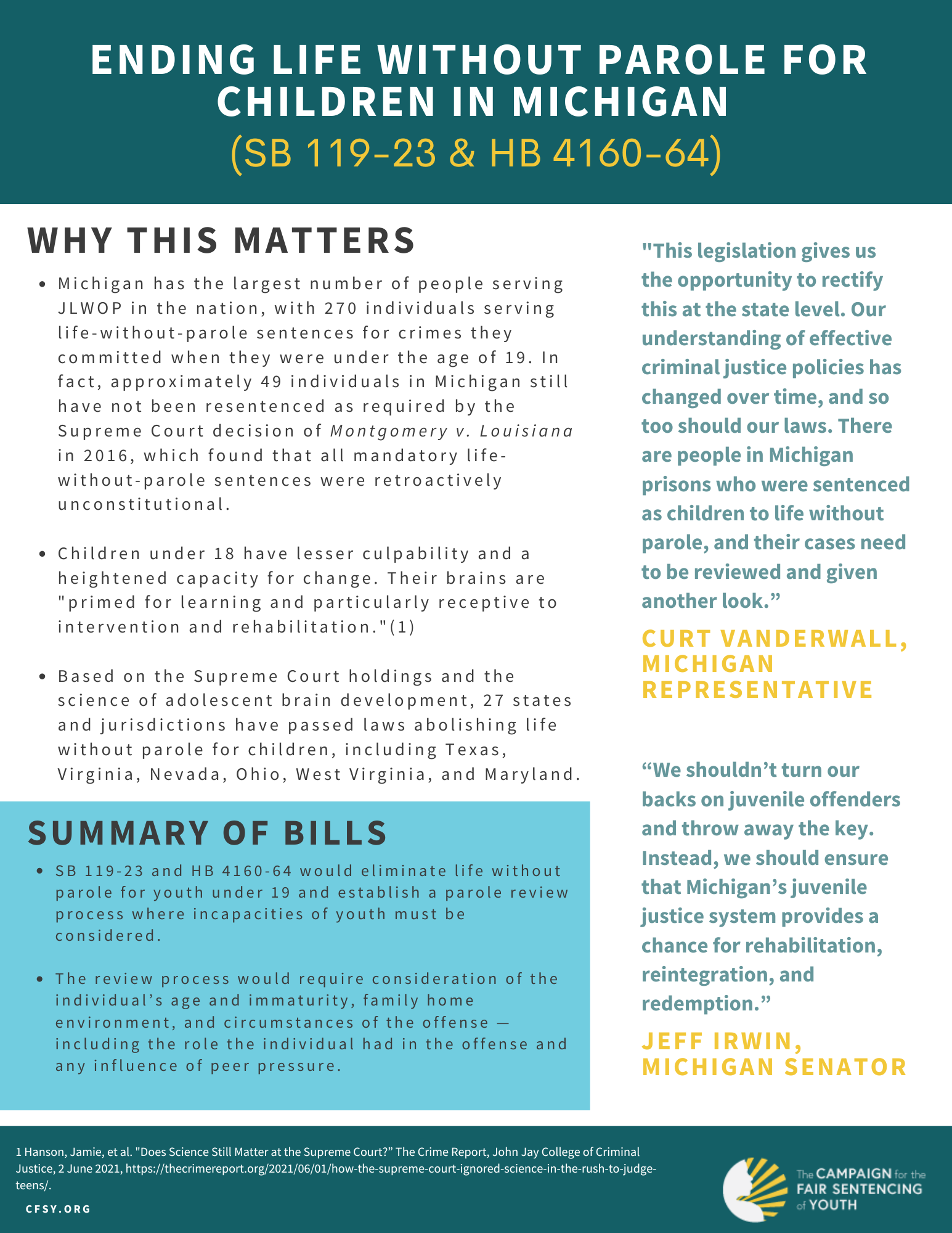Ending Juvenile Life without Parole (JLWOP) in Michigan
Michigan has the largest population of individuals serving life without parole since children in the U.S. – and the world.
SB 119-23/HB 4160-64 would eliminate juvenile life without parole sentences. Read more about the legislation here.
To understand how much of a global outlier Michigan is on the issue of JLWOP, access key stats in this factsheet:
Unusual & Unequal: The Unfinished Business of Ending Life Without Parole for Children in the United States, a new report revealing alarming statistics about the continued imposition of juvenile life without parole (JLWOP) in the United States.










